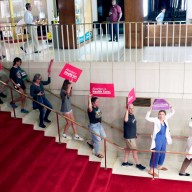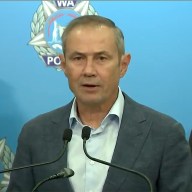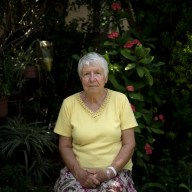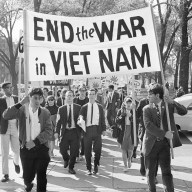TEHRAN, Iran – Iran’s opposition said Tuesday it had verified the deaths of 69 people in the two months of unrest since the disputed presidential election, confirming suspicions that the death toll was at least more than double the official figure.
Human rights groups have said throughout the crisis that they believe the death toll in the crackdown on protesters is far higher than the official Iranian count. But establishing a detailed picture of the number of casualties and their identities has been made difficult by restrictions on journalists and a reported prohibition on public mourning ceremonies.
A senior aide to Mir Hossein Mousavi, the opposition leader who claims he was the true winner of the June 12 presidential vote, delivered a list of the dead to parliament.
“We submitted names of 69 killed and some 220 detainees to the special committee of parliament during a meeting in parliament on Monday,” Ali Reza Beheshti told The Associated Press.
The list was verified through accounts of the victims’ families, he said. It includes deaths in the capital, Tehran, and other parts of the country, he said, adding that the number of verified dead is still rising.
Beheshti declined to release the list publicly out of concern it could inflame the situation.
The higher toll could fan outrage among pro-reform opposition supporters as well as some conservatives upset over the treatment of protesters, particularly alleged abuses of those who have been detained.
Mahdi Karroubi – another pro-reform candidate defeated in the election – said over the weekend that he has received reports from former military commanders and other senior officials that some detained protesters, both men and women, were raped in custody.
That followed acknowledgments by senior police and judiciary officials that some detainees had been abused in prison, an admission that apparently was aimed at cooling the public anger.
Iran’s deputy police chief, Gen. Ahmad Reza Radan, said police are standing by a death toll of 19 given by the Tehran provincial governor in June, even though a parliamentary committee that investigated deaths in unrest more recently put the figure at 30. Radan also lashed out at foreign media, as Iranian authorities have done often during the crisis, saying they were trying to weaken the will of the armed forces.
The new list was presented to parliament on behalf of Mousavi and Karroubi.
Hundreds of thousands of Mousavi supporters took to the streets after the election, claiming it was rigged in favour of President Mahmoud Ahmadinejad. That prompted a violent crackdown led by the powerful Revolutionary Guard and its allied Basij militia.
It has been virtually impossible for journalists to independently verify casualty figures or detentions because the government has tightly restricted coverage of the opposition movement and all its activities.
Iranian authorities have even pressured the families of slain protesters not to mourn publicly out of fear the gatherings could spark demonstrations, according to the opposition.
Still, the names and stories of some victims have trickled out.
The death of one of them, Neda Agha Soltan, was captured on cellphone videos that were widely circulated on the Internet. The 27-year-old music student was fatally shot during a demonstration on June 20 and her name and picture immediately became a rallying cry of the opposition.
Another person known to have died is Mohsen Rouhalamini, the son of a top aide to Mohsen Rezaei, the single conservative candidate to run against Ahmadinejad. He was arrested during a July 9 protest and taken to a hospital two weeks later where he died within hours.
Also on Tuesday, the spokesman of Iran’s judiciary, Ali Reza Jamshidi, told reporters that while some 4,000 people were initially detained, only 300 remain in custody.
Iran is prosecuting about 100 of the detainees, in what U.S. Secretary of State Hillary Rodham Clinton and others have called a “show trial.” A number of defendants have made public confessions that the opposition says were coerced.
On Tuesday, Iran released an employee of the French Embassy who is among those on trial, according to the French president’s office. Nazak Afshar, a French-Iranian cultural analyst at the embassy, is accused of involvement in the postelection disturbances. France wants the charges against her dropped.
France is also pressing for the release of French academic Clotilde Reiss, who is charged with acting against national security by attending protests, gathering information, and taking photos and sending them abroad.
Iran’s ambassador to France said Tuesday that Tehran was offering to release Reiss from jail for the rest of the trial as long as she remains in the custody of the French Embassy.
The ambassador, Seyeb Mehdi Miraboutalebi, said on French radio RFI that there had been no response to the offer. The French Foreign Ministry had no immediate comment.
Reiss was arrested on July 1 at Tehran’s airport as she was about to leave Iran after five months of studying and teaching French at Isfahan University.
Iran is also under pressure over its detention of three Americans who crossed a poorly marked border while hiking in the Iraq’s Kurdish north on July 31.
On Tuesday, Iraq distanced itself from any notion it was acting on behalf of the U.S. when its foreign minister prodded Tehran for information last week on the three Americans.
“We are not mediators,” said Iraqi government spokesman Ali al-Dabbagh.
He said Iraq was interested in learning more about the circumstances that led to the arrests because it involved its border.
The Iraqi foreign minister, Hoshyar Zebari, raised the issue with his Iranian counterpart last week, setting off speculation that Iraq might be acting on behalf of Washington to help secure the release of the Americans.
–
Associated Press writers Elaine Ganley in Paris and Qassim Abdul-Zahra in Baghdad contributed to this report.
















